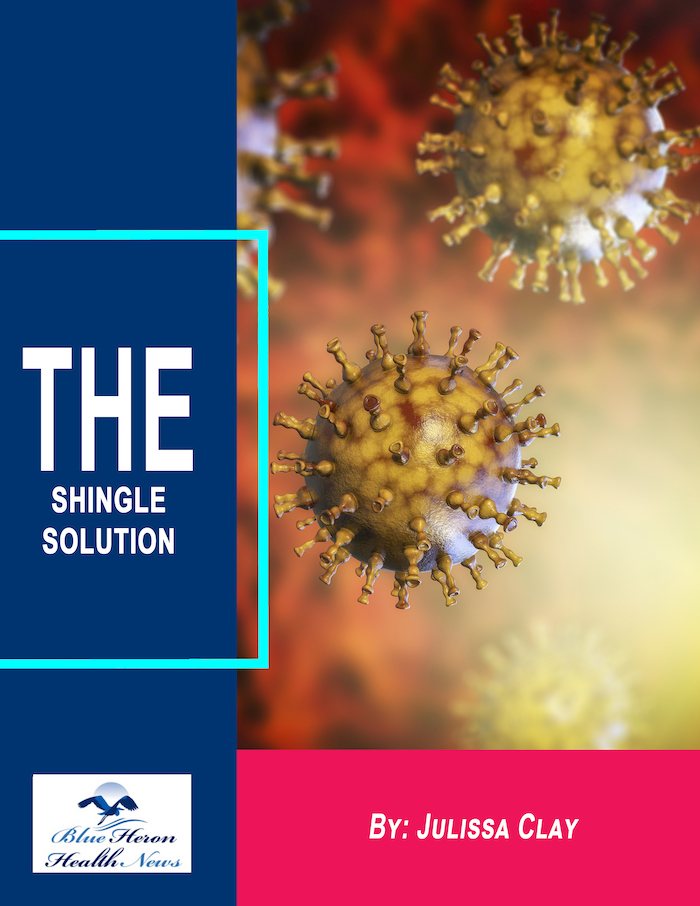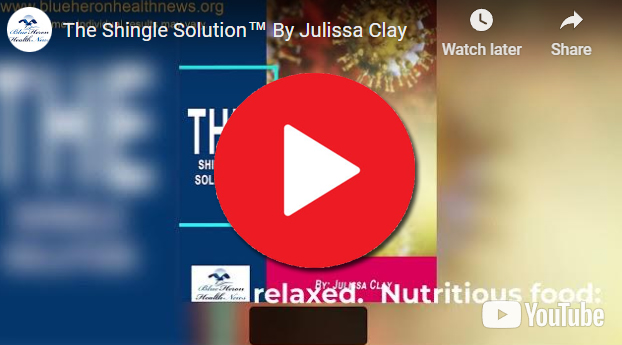
The Shingle Solution™ By Julissa Clay This eBook includes a program to treat the problem of shingle naturally. The author of this eBook, Julissa Clay, a practitioner in natural health, has killed the shingles causing virus completely to overcome the problem of PHN or Postherpetic neuralgia, one of the common complications caused by shingles. This program helps in melting PHN in a few weeks and make shingles a forgotten nightmare.
What are the dietary recommendations for shingles patients?
Shingles, also known as herpes zoster, is a viral infection caused by the reactivation of the varicella-zoster virus, the same virus that causes chickenpox. Shingles is characterized by a painful rash that can develop anywhere on the body, and it often occurs in a single stripe of blisters that wraps around either the left or the right side of the torso. Managing shingles effectively involves not only antiviral medications and pain relief but also supportive care, including dietary considerations. While there is no specific diet to cure shingles, certain dietary recommendations can help support the immune system, manage symptoms, and promote healing. Here’s a detailed overview of dietary recommendations for shingles patients:
1. Immune System Support
A strong immune system can help the body fight off the virus more effectively and prevent complications. Here are some key nutrients and dietary strategies to support immune health:
a. Vitamins:
- Vitamin C: An antioxidant that supports immune function and skin healing. It can be found in citrus fruits (oranges, lemons), strawberries, bell peppers, kiwi, broccoli, and Brussels sprouts.
- Vitamin E: Another antioxidant that helps protect cells from damage and supports immune function. Sources include nuts (almonds, hazelnuts), seeds, spinach, and avocados.
- Vitamin A: Supports immune health and skin integrity. Rich sources include carrots, sweet potatoes, spinach, and liver.
b. Zinc:
- Zinc plays a crucial role in immune function and wound healing. Good sources of zinc include lean meats, seafood (especially oysters), beans, nuts, seeds, and whole grains.
c. Selenium:
- Selenium is an antioxidant that supports immune health. It can be found in foods like Brazil nuts, seafood, eggs, and whole grains.
d. Probiotics:
- Probiotics can support gut health, which is closely linked to overall immune function. Foods rich in probiotics include yogurt with live active cultures, kefir, sauerkraut, kimchi, and other fermented foods.
2. Anti-inflammatory Foods
Reducing inflammation can help alleviate the pain and discomfort associated with shingles. Incorporating anti-inflammatory foods into the diet can be beneficial:
a. Omega-3 Fatty Acids:
- Omega-3 fatty acids have anti-inflammatory properties. Good sources include fatty fish (salmon, mackerel, sardines), flaxseeds, chia seeds, walnuts, and hemp seeds.
b. Turmeric:
- Turmeric contains curcumin, a compound with potent anti-inflammatory effects. It can be used in cooking or taken as a supplement after consulting with a healthcare provider.
c. Ginger:
- Ginger also has anti-inflammatory properties and can be added to meals, consumed as tea, or taken in supplement form.
d. Green Leafy Vegetables:
- Vegetables like spinach, kale, and Swiss chard are rich in antioxidants and nutrients that help combat inflammation.
3. Hydration and Skin Health
Maintaining good hydration is essential, especially if the shingles rash is severe or accompanied by fever.
a. Water:
- Staying well-hydrated helps support the immune system and skin healing. Patients should aim to drink plenty of water throughout the day.
b. Herbal Teas:
- Herbal teas, such as chamomile or peppermint, can be soothing and help maintain hydration. However, it’s best to avoid caffeinated teas if they lead to dehydration.
4. Foods Rich in Lysine
Lysine is an amino acid that may help reduce the replication of the herpes virus, although more research is needed to confirm its effectiveness specifically for shingles.
Lysine-Rich Foods:
- Foods high in lysine include dairy products (milk, cheese, yogurt), eggs, poultry, fish, and legumes.
5. Foods to Avoid
Certain foods may exacerbate symptoms or interfere with immune function:
a. Arginine-Rich Foods:
- Arginine is an amino acid that can promote the replication of the herpes virus. While it’s not necessary to eliminate arginine-rich foods entirely, patients may want to limit intake of nuts (especially peanuts), seeds, chocolate, and gelatin.
b. Sugary Foods:
- High sugar intake can suppress immune function and increase inflammation. It’s advisable to limit sugary snacks, desserts, and sweetened beverages.
c. Processed Foods:
- Processed foods often contain unhealthy fats, sugars, and additives that can contribute to inflammation. It’s best to focus on whole, unprocessed foods.
d. Alcohol:
- Alcohol can weaken the immune system and may interact negatively with medications. It’s best to avoid or limit alcohol consumption during a shingles outbreak.
6. Managing Pain and Discomfort
Some foods can help soothe pain and discomfort:
a. Cold Foods:
- For shingles affecting areas near the mouth or throat, cold foods like smoothies, yogurt, and ice cream can provide soothing relief.
b. Soft Foods:
- If shingles cause pain when chewing or swallowing, soft foods like soups, broths, mashed potatoes, and applesauce can be easier to consume.
7. Special Considerations and Supplements
a. Consult Healthcare Providers:
- Before making significant dietary changes or starting supplements, patients should consult with healthcare providers, especially if they are taking medications or have other health conditions.
b. Supplements:
- In some cases, supplements like vitamin C, vitamin E, zinc, or lysine might be recommended, but they should be used under medical supervision to avoid potential interactions or side effects.
c. Nutrition and Medication Interactions:
- Patients should be aware of potential interactions between certain foods and medications. For example, grapefruit and grapefruit juice can interfere with the metabolism of some antiviral drugs.
Conclusion
While there is no specific diet to cure shingles, proper nutrition can support the immune system, reduce inflammation, and aid in the recovery process. A balanced diet rich in vitamins, minerals, and anti-inflammatory foods, along with adequate hydration, can help manage the symptoms of shingles and promote healing. It’s important for individuals with shingles to work with their healthcare providers to create a dietary plan that supports their overall health and complements their treatment regimen.

The Shingle Solution™ if you are suffering from shingles then The Shingle Solution can be the best program for you to relieve your pain and itching by using a natural remedy. It describes the ways to use this program so that you can feel the difference after using it as directed. This natural remedy for shingles can also help in boosting your immune system along with repairing your damaged nerves and relieve pain and itching caused by shingles.